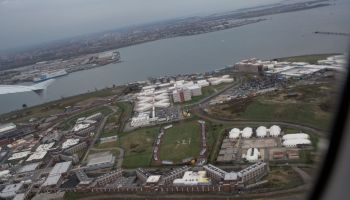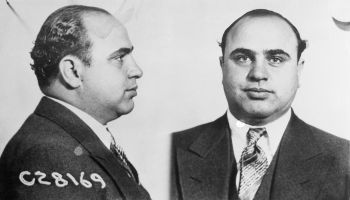VIA THE WASHINGTON POST:
Metro plans to curtail its expensive-to-operate transit alternative for the elderly and disabled just as ridership for the service is projected to grow 50 percent over the next four years.
The agency has proposed the changes as part of an effort to cover a $190 million gap in its operating budget for the fiscal year that begins July 1.
Staff members outlined the changes at a meeting on Thursday, where the board of directors also considered a $1.9 billion contract for 748 new rail cars, with an initial 64 cars for the expansion of the subway system to Dulles International Airport. The board deferred action on the contract.
The MetroAccess transit service has seen its annual passenger trips increase from about 1.5 million in 2007 to a projected 2.4 million this year as the population of older and disabled people in the region has grown. Meanwhile, its operating budget has increased from about $60 million to $80 million this year, and is projected to reach $100 million in 2011, according to Metro data.
But the $2.50 fare that customers pay for each one-way trip represents only 5 percent of the cost, Metro said. That amount of subsidy is not sustainable, according to Metro board Chairman Peter Benjamin and an assessment made this month by veteran transit consultant David Gunn, a former Metro general manager.
The service offered by Metro is more generous than what is required by the Americans with Disabilities Act, and Metro’s proposal to restrict it would bring it closer to those standards.
For example, MetroAccess would limit service to within a three-quarter mile distance from existing bus and rail service, in line with ADA standards, saving $2.4 million a year. Currently, the service operates beyond the three-quarter mile radius where no other public transportation exists.
Another proposal would increase MetroAccess fares to the maximum allowed under the ADA definition, or twice the equivalent fare on regular bus routes. Metro anticipates the fare increase would encourage some MetroAccess riders to switch to using regular bus and rail service under a free ride program aimed at reducing their reliance on paratransit.
In July, Metro plans to implement a policy of conditional eligibility for the use of MetroAccess, which would constrain use of the service depending on a person’s situation. “For instance, a person with low vision might be able to take Metrobus during the day but would need to take MetroAccess at night,” said Selene Faer Dalton-Kumins, director of MetroAccess Service.
In other developments, Metro’s board of directors voted to delay approval of a contract worth a potential $1.9 billion for Kawasaki Rail Car for 748 new rail cars — a cost of about $2.65 million per car. Board members, briefed on the details of the contract for the first time on Thursday, said they needed more time to review the selection of Kawasaki, one of seven companies who bid, and to scrutinize how to pay for the deal.
The Metropolitan Washington Airports Authority, which is responsible for building the Silver Line extension to Dulles, will pay for 64 cars, said Metro Deputy General Manager David Kubicek. The first phase of the Silver Line extension is scheduled to open in 2013. Questions remain about how the remainder of the purchase would be financed. A board decision is not expected until mid-April.
Kubicek told the board that Kawasaki achieved the highest technical and price rankings among the bidders, with its U.S.-built stainless steel cars showing strengths in safety and quality. For example, the cars would perform better in crashes than the 1000 Series they are replacing, he said. the new 7000 Series “cars will have different crash-worthy characteristics, absolutely,” he said.
Unlike Metro’s previous generations of rail cars, the 7000 Series cars cannot be combined with old ones. They can run anywhere in the system, Kubicek said, but will not be coupled with any previous generation of cars.
It was the last board meeting for outgoing General Manager John B. Catoe Jr., who departs April 2 after a roller-coaster tenure leading the transit agency, which is suffering from historic budget deficits, a string of fatal accidents and safety lapses, and a demand from federal lawmakers for more oversight.
“I have no regrets about coming to this agency,” Catoe said in closing remarks to the board, whose members uniformly praised Catoe’s leadership. “There are things that I wish that would have turned out slightly different. All I could do was the best that I could do.”
Catoe, who took over in January 2007, said Metro “needs to take a different direction, and it is best that someone else leads that change.” He urged Metro’s 10,000 managers and employees to rededicate themselves to safe operations and customer service, saying those are “jobs that are never done.”
An interim general manager, Richard Sarles, former chief of New Jersey Transit, is scheduled to start Monday.
- Morocco: Entertainment, Food, Languages, Places To Visit + More
- Algeria: Entertainment, Food, Languages, Places To Visit + More
- Sudan: Entertainment, Food, Languages, Places To Visit + More
- South Sudan: Entertainment, Food, Languages, Places To Visit + More
- Libya: Entertainment, Food, Languages, Places To Visit + More














